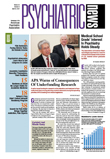The U.S. Food and Drug Administration (FDA) released in March a new draft guidance that would implement more stringent restrictions on financial ties that present potential conflicts of interest for researchers and clinicians on its advisory committees. The FDA is accepting public comments on the draft guidance through May 21.
“The FDA is committed to making the advisory-committee process more rigorous and transparent so that the public has confidence in the integrity of the recommendations made by its advisory committees,” said Randall Lutter, Ph.D., the agency's acting deputy commissioner for policy.“ Today's draft guidance document should provide more consistency in the consideration of who is eligible to participate in advisory committee meetings and would simplify the process.”
Potential conflicts of interest for members of FDA advisory committees became a critical issue for the agency in 2005. At that time an expanding group of agency critics contended that conflicts of interest and undue industry influence were the silent administrators in charge of the FDA.
As an example, critics cited advisory-committee votes that allowed the non-steroidal anti-inflammatory drugs valdicoxib (Bextra) to remain on the market and rofecoxib (Vioxx) to return to the market, despite serious concerns over associations between both medications and cardiovascular adverse events. Out of 32 members who voted to keep the drugs on the market, 10 had financial connections to either Pfizer (maker of Bextra) or Merck (maker of Vioxx), or both.
In the end, the votes became moot as the FDA ordered Bextra removed from the market, and Vioxx never returned. The controversy, however, has been alive and well ever since and has included investigations by congressional committees with jurisdiction over the FDA.
According to FDA officials, the agency currently screens all prospective advisory-committee members before each meeting to determine whether the potential for a financial conflict of interest exists. Under the law, the agency may grant a waiver when certain criteria are met, such as when the need for an individual's expertise out-weighs the potential for a conflict of interest. However, waivers have been granted for many reasons, and critics have charged that the agency has used different criteria to grant waivers to members of different advisory committees, depending on the agency's needs at the time.
The draft guidance, once finalized, would reduce the likelihood that the process for recommending waivers would vary from meeting to meeting. If an individual has disqualifying financial interests whose combined value exceeds $50,000, after applying certain exemptions, the person would generally not be considered for participation in the meeting, regardless of the need for his or her expertise. If the financial interests are $50,000 or less, after applying certain exemptions, the individual might be recommended to participate as a nonvoting member. Only individuals with no potential conflicts would be eligible to participate in meetings as voting members.
Under the guidance, “financial interest” means “the potential for gain or loss to a person (or their family and outside affiliations) as a result of the government's action on a particular topic. Financial interests to be screened include, but are not limited to, stock ownership, related research, and consulting arrangements.”
“Guidance for Industry and FDA Staff: Procedures for Determining Conflict of Interest and Eligibility for Participation in FDA Advisory Committees” is posted at<www.fda.gov/oc/advisory/waiver/coiguidedft.html>. Electronic comments on the draft guidance can be submitted at<www.fda.gov/dockets/ecomments>.▪
